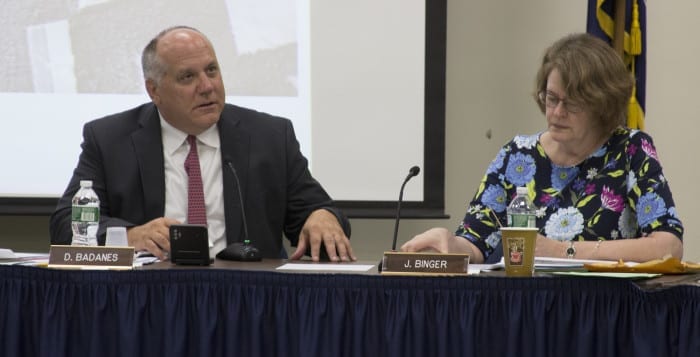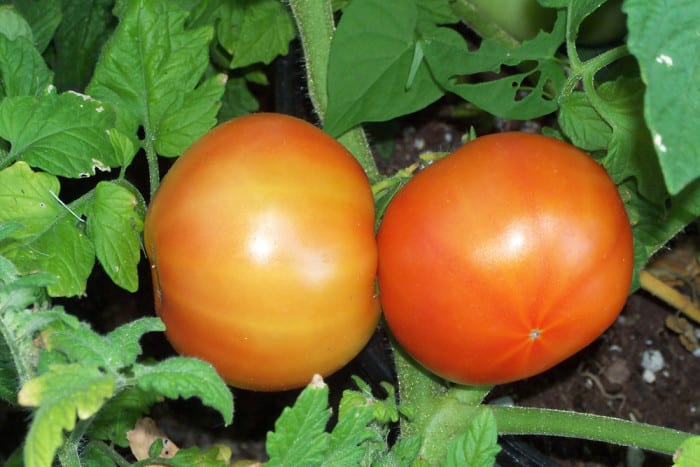By Eric Santiago
The soil at Norwood Avenue Elementary School is safe for children, an environmental engineer told the Northport-East Northport school board last week.
“I would expect concentrations in my own backyard would be very similar to what we found on the school property,” said Paul Lageraaen, the environmental services department manager for H2M architects + engineers.
Last month, the school board tasked Lageraaen’s firm with analyzing the school grounds to determine if the area had been contaminated with hazardous chemicals out of “an abundance of caution, and in response to low levels of contaminants found in the soil of a neighboring farming property proposed to be developed into a winery,” according to a statement from Superintendent Robert Banzer. Dust from a property that is proposed to be developed into a vineyard next to the school may have fallen on school grounds while the land was being cleared out, officials said. Lageraaen presented the firm’s findings at Wednesday night’s school board meeting.
Of the dozens of herbicides, metals and pesticides tested, only one was discovered at noteworthy concentrations. Arsenic, a common ingredient in pesticides before it was banned in 1991, was found at moderate levels in the northwest corner of the school. The proposed vineyard property is along the school’s eastern border.
This was not a great concern to Lageraaen.
H2M tested its soil samples against New York State’s Department of Environmental Conservation Regulations Part 375. According to these regulations, residential areas should have a maximum arsenic concentration of 16 parts per million (PPM). The sample from that corner of the school was analyzed at 17 PPM. This was one of 16 samples taken from across the school grounds. The rest all tested below this level.
Lageraaen pointed out that regulations are not an actual limit.
“It’s defined as an objective,” he said. “It’s not a hard and fast action level.” This is because there isn’t a definitive consensus for what that level should be. For example, New Jersey regulations say that 19 PPM should be the maximum concentration for residential areas.
But the key finding Lageraaen cited was that were was no sign that soil around the school had been moved, disturbed or contaminated by a dangerous chemical.
“The soils that are at Norwood school are the same soils that have been there for 60 years,” he said. “If I found an area where suddenly arsenic or some other compound was at 100 PPM and everything else was at 15 PPM, then you have to be concerned.”
Once the presentation was finished, David Badanes, vice president of the school board, asked the central question for the board.
“I guess the bottom line question is this: Are the children that are going to play at Norwood safe?”
“Yes,” said Lageraaen, who also coaches community soccer at the Northport fields. “I have no qualms about returning there to coach or my kids playing on those fields.”
In closing out the discussion, board President Andrew Rapiejko said that the board has been in contact with the town about the proposed vineyard, and encouraged concerned community members to do the same.
In a phone interview on Thursday, Fred Giachetti, who owns the property and wants to develop it into a vineyard, stressed that he has contacted local officials and experts to ensure the property is managed responsibly.
“I have never been irresponsible and reckless in my whole life,” he said. “I’m a graduate of Northport High School. My wife and I have been trying to do something that is bringing back the agrarian traditions of our community because we have a great interest in it and a family history. We think it’s a wonderful idea — instead of building more McMansions or condos or townhomes, we could try and bring something back to the community that we’ve lost.”






